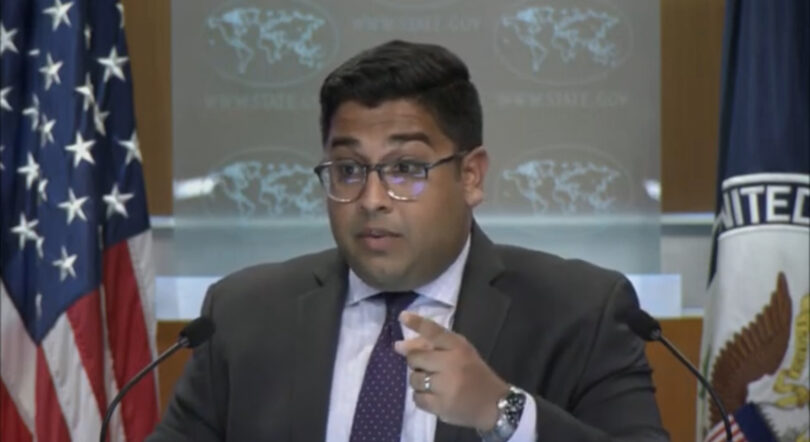Jalil Afridi
Washington, D.C. – In a press briefing today, Vedant Patel, Principal Deputy Spokesperson for the U.S. State Department, faced tough questions regarding U.S. support for Afghanistan under Taliban rule, especially concerning the education of women and girls. The questions were posed by a correspondent from The Frontier Post, who voiced personal concerns about the impact of the Taliban’s policies on education and terrorism.
The correspondent highlighted the critical issue of women’s education, citing a local saying: “You educate a man, you educate a family; you educate a woman, you educate a whole village.” He expressed alarm over the lack of educational opportunities for Afghan women and criticized the U.S. for cooperating with the Taliban despite these ongoing issues. “In my backyard, another terrorists are going to be raised in coming years, right, because when their moms are not educated – and you guys are still cooperating with the Taliban,” he said, stressing the personal risk involved in raising such questions.
Patel responded by providing an update from the Doha 3 conference, where discussions on Afghanistan were taking place. He noted that Special Representative Tom West and Special Envoy Rina Amiri were attending the UN-convened meetings alongside representatives from dozens of countries and international organizations. “We committed to participating in this after receiving assurances from the UN that the discussion would meaningfully address human rights, particularly the plight of women and girls; and, importantly, that there would be opportunities for engagement in Doha with Afghan women and civil society,” Patel stated.
Despite the correspondent’s insistence on addressing the issue of women’s education more directly, Patel emphasized the broader context of U.S. efforts. He pointed out that the Taliban’s policies are significantly harming the Afghan economy, robbing it of over a billion dollars per year in GDP. Patel also addressed concerns about banking and economic restrictions, clarifying that any reservations from private banks about doing business in Afghanistan are rooted in the Taliban’s human rights record.
The press briefing underscored the ongoing challenges and complexities of U.S. involvement in Afghanistan, particularly in advocating for human rights while navigating diplomatic and economic constraints.







